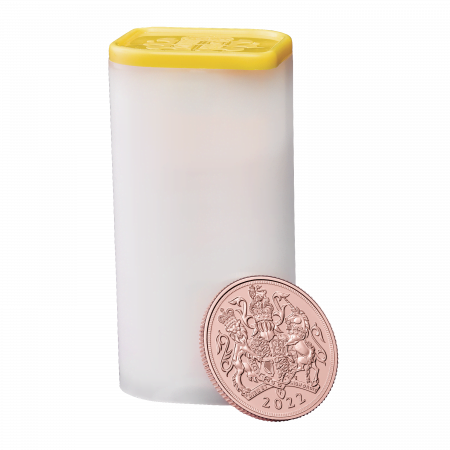Capital Gains Tax

Capital Gains Tax – All you need to know when buying gold & silver
It’s a not so well kept secret that certain gold and silver coins are not taxable for Capital Gains Tax. That detail can have a huge impact on your profits.
So we thought we’d provide a run down of what you need to know.
What is Capital Gains Tax
Capital Gains Tax (CGT) is a tax levied on individuals and corporations when they sell/dispose of an asset and make a profit (a capital gain). For you and I, that means a tax on any profit you make from selling a chargeable asset such as shares or a second home. The tax only applies once the particular asset is sold and a profit has been made, rather than when the asset is still held.
The tax is calculated annually on an individual’s net gains. So for instance, if you sell 2 different shares during the year and one makes a loss while the other profits, your annual capital gain will be the net profit of the two.
The current rate of Capital Gains paid, varies between 18% and 28%, depending on whether you’re a lower or higher rate taxpayer. But don’t be surprised if the UK Government decides to increase the tax as high as 40-45% in the near future, in an attempt to raise taxes stealthily.
Are there any exemptions?
While most investments will be taxable, the good news is that there are a few exceptions to the rule. Any gains made on an ISA or pension are protected from CGT. Additionally, selling premium bonds, UK gilts, your primary residence, or a private car are all tax-free. Oh, and betting, the lottery and pools also escape incurring CGT.
Is there CGT on gold and silver?
Just like any other capital asset, selling gold or silver at a profit can incur CGT. However, we just hate the idea of our customers having to share any profits from gold or silver, if they don’t have to.
Two of the most popular ways of avoiding CGT are by buying UK tax-free coins and Pension Gold.
Coins produced by the Royal Mint, which qualify as legal tender, are not subject to CGT as the Treasury cannot tax the movement of legal currency. This covers Gold Sovereigns, Gold Britannias, Silver Britannias and some other limited issue Royal Mint coins. There is no upper limit either, which is why so many customers focus on these coins as a tax-free store of wealth.
Under the Taxation of Chargeable Gains Act 1992 (section TCGA92/S21 (1) (b)), Sovereigns dated after 1837 and Britannias are exempt from CGT due to their legal tender status. Older Sovereigns dated pre-1837 qualify for exemption under a separate rule of being a chattel (personal possession). Many other Royal Mint coins with a face value, such as Queen’s Beasts, Tudor Beasts and Myths and Legends coins, to name just a few, also qualify as the meet the same technical specifications as the Britannia.
If all this sounds complicated, don’t worry, we specialise in guiding you to the most tax-efficient gold and silver. Just call us on 020 7060 9992 and a member of our team can suggest coins which qualify as CGT-free.

Can I sell other gold or silver without paying CGT?
Everyone in the UK is has been allowed to make a profit on sales of just over £12,ooo each tax year without paying CGT. This means if you buy modest amounts of taxable gold or silver, say £5,000; even if the price has doubled when you come to sell, you’ll still fall within your tax-free annual limit. But from 5 April 2023, this tax-free limit will half to only £6,000. From April 2024, it will fall again, this time to a mere £3,000 annually.
However, if you also need to sell other taxable assets, such as shares, in the same tax year, you’ll probably wish you owned more tax-free gold or silver.
With this in mind, you could sell small values of your taxable gold or silver so that you fall within your allowance. The annual calculations run from 6 April to the following 5 April, so you could sell some coins before year-end and some just afterwards.
With Covid-related national debt at record levels, we wouldn’t be surprised to see the tax-free allowance reduced or even cancelled altogether.
Summary
The good news is that we focus on selling gold and silver coins which will never be liable for Capital Gains Tax. So if you’re wondering if silver or gold is the tax-free investment you’re looking for, you should look no further than the UK legal tender coins. Both gold and silver versions are very popular, partly due to their tax-free nature, but also because they’re very liquid. So investing in them means they’re easy to sell at optimum prices, without sharing your profits with the Treasury.



Leave a Reply
Want to join the discussion?Feel free to contribute!